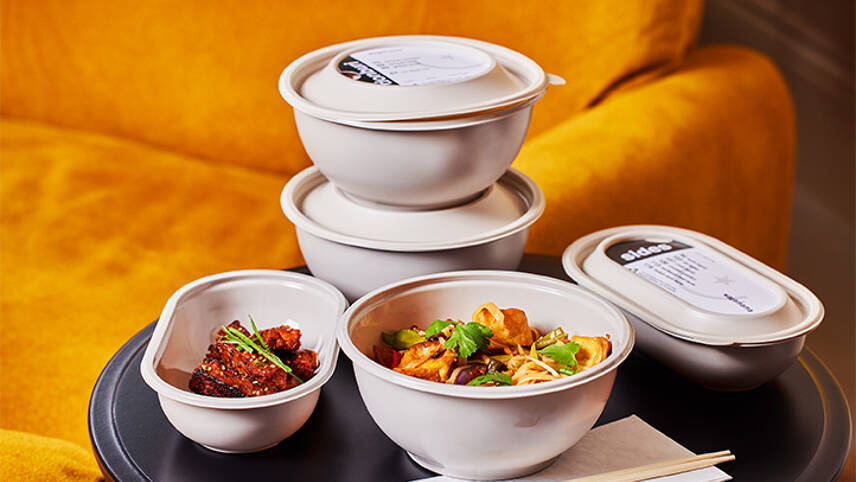Register for free and continue reading
Join our growing army of changemakers and get unlimited access to our premium content

Wagamama has launched a new “bowl bank” scheme. It acts as a takeback system that invites customers to return packaging to their nearest restaurant
Wagamama is switching more than eight million of its delivery bowls to a more recyclable form of plastic which it calls cPET. cPET is used for items like ready meals and deliveries due to food safety assurances. Wagamama claims the cPET is made from 70% recycled content and will remove up to 330 tonnes of virgin plastic from the supply chain.
The remaining 30% will consist of plastics to ensure the structure of the bowl remains in place. The bowls also come with a lid that is not currently made of cPET, for example, but Wagamama has stated it will work with its project partners to create a fully circular solution within the next 18 months.
The company also claims that the new delivery bowls will reduce the carbon footprint of packaging by almost two-thirds. The packaging has been introduced this week and will be live across all of Wagamama’s restaurants and delivery kitchens by October.
Wagamama chief executive Thomas Heier said: “We are in a fortunate position that Wagamama is much-loved by consumers, but we know this comes with a huge responsibility. Reducing our use of virgin plastics is a complicated mission – but one we have been dedicated to for four years. This has been driven by the belief that we needed to do better for our guests, teams, and the planet.
“Months of trial and error, conversations with leading experts, and research into UK waste streams has resulted in a moment where we can finally say we’re proud of our packaging. Proving small choices make for big change and sustainable progress doesn’t happen overnight. This is an exciting and overdue step for us but only the beginning.”
Bowl Bank
The Changing Markets Foundation recently warned that many companies using “recyclable” and ocean-bound plastics are often susceptible to failing foul of greenwash, largely because there is still no guarantee that these materials will be recycled.
To that end, Wagamama has launched a new “bowl bank” scheme. It acts as a takeback system that invites customers to return packaging to their nearest restaurant. Wagamama claims it has been set up because of the “varied practices” that can be found across UK waste and recycling streams and that creating a centralised system for users to rid themselves of the packaging should help improve recycling rates.
Bowl Bank will be available in every Wagamama restaurant by October 2022.
Nonetheless, brands are still facing calls to ensure they are reducing the amount of plastic (recycled, recyclable, or otherwise) that they are using.
According to recent reports, Europe uses 44 million tonnes of virgin fossil-based plastics each year. The continent has a slightly higher plastics recycling rate than the global average – 14% compared to 9%. It notes that, by 2030, on a trajectory based on current national, business and international commitments being delivered, 33% of all plastic produced in 2030 would be either recycled, reused or used for energy-from-waste (EfW).
This proportion will not be sufficient to align the plastics value chain with long-term policy goals on resources or with the 2050 net-zero pledges from the UK and EU. On this trajectory, Europe would still be using 37 million tonnes of virgin fossil-based plastics each year in 2050. Use would have only fallen 16% against a 2020 baseline.


Please login or Register to leave a comment.